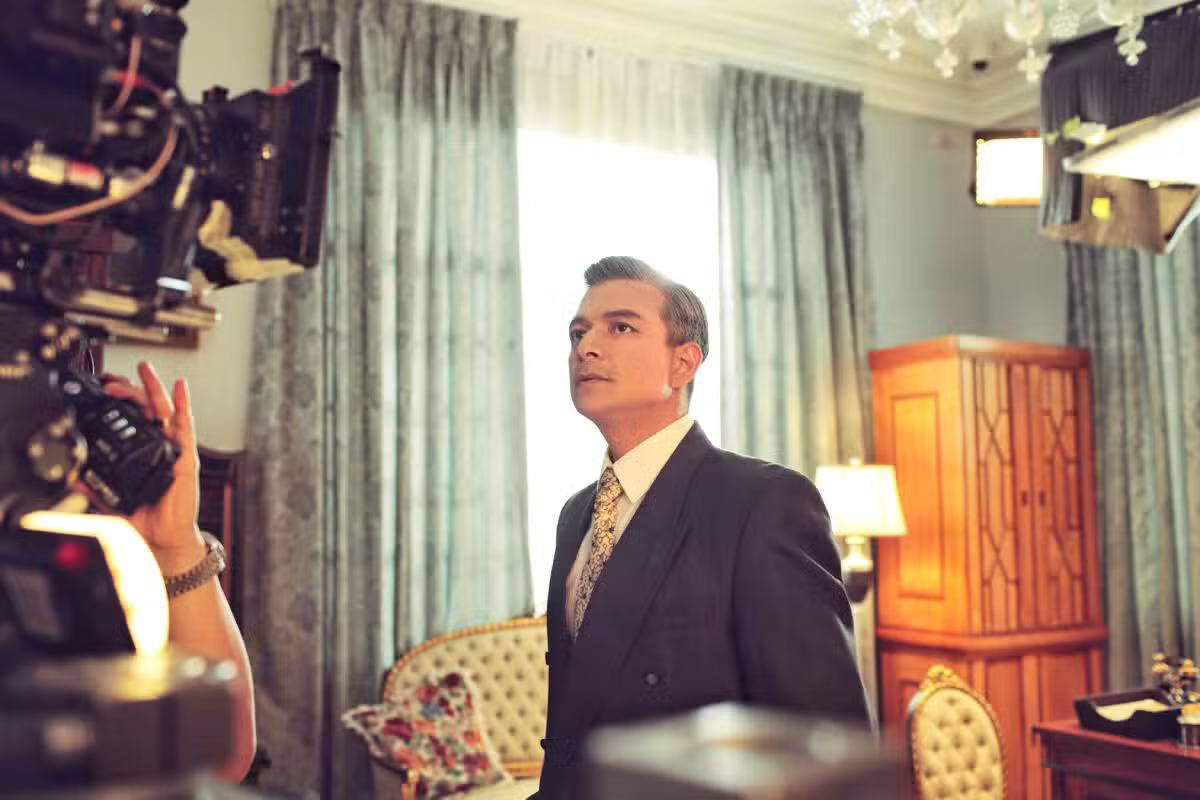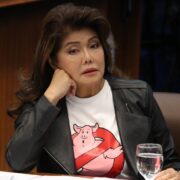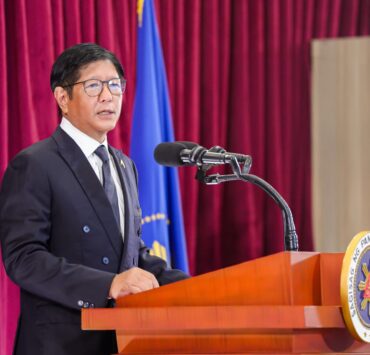The ‘Quezon’ question: Descendant’s ire vs director’s vision

Following his viral confrontation with the creators of the historical biopic “Quezon” this week, Ricky Avanceña, a direct descendant of former President Manuel L. Quezon, said he “has outperformed seasoned performers” and “disrupted the so-called disruptors of the movie industry.”
“In the process, I have sparked a national debate—one that is long overdue, but not dominated only by those who have the money to produce a movie for purely selfish and pecuniary interests,” he told the Inquirer.

A joke?
On Oct. 23, a post-screening discussion got heated when Avanceña—in an expletive-laden tirade—accused filmmaker Jerrold Tarog of misrepresenting his grandfather’s legacy and tarnishing the family memory for financial gain.
“Quezon” lead star Jericho Rosales intervened and tried pacifying Avanceña, but only ended up fueling his ire.
In an earlier Facebook post, Avanceña wrote that he went to watch the film expecting something “feel-good and upbeat,” only to a see his grandfather portrayed as a “a man driven to attaining power at any and all cost” and as “the root of social and systemic ills currently plaguing the country due to excessive and incessant politicking.”
Avanceña’s bone of contention also included the film’s use of satire, which he equated to “a joke” and therefore “not to be believed.”
In a TV interview with One News, he described it as “the art of making someone or something look ridiculous, raising laughter to embarrass, humble, and discredit its targets”—a definition seemingly drawn from an Oregon State University essay on the different types of satirical literature.
Tarog, who had previously deemed satire as the most effective way to tell the story, argued that “serious stories can be told through laughter.”
Producer TBA Studios also stressed that the movie “is grounded in verified historical accounts and other reputable sources.”
“While the film includes fictional elements for thematic purposes, the facts and details presented in the film are easily verifiable through public records, online research, or library resources,” the company’s statement read. (Requests for additional comments have not been answered by the filmmakers as of this writing.)
‘The Good Fight’
Avanceña—the son of Zenaida “Nini” Quezon Avanceña (one of MLQ’s children with former first lady Aurora Quezon)—is waging a campaign to highlight the noble qualities of his grandfather that he said the film failed to appreciate, like the “goodness of his heart, his care for the poor and oppressed, his hatred of corruption, his love of country and its people.”
He dubbed his cause “The Good Fight”—a homage to his grandfather’s autobiography of the same title.
“I stand on the truth as conveyed to me not only by MLQ’s children—my mother and Tio Nonong (MLQ Jr.)—but also by countless people from across the country and around the world,” he said. “My inbox is overflowing [with messages] from people I don’t know, professing deep admiration—and even love—for Lolo because of anecdotes and stories passed down from their parents or grandparents.”
“I’m confident that we shall prevail,” added Avanceña, who likewise claimed that relatives of Antonio Luna and Gregorio del Pilar—subjects of the first two installments of Tarog’s “Bayaniverse” trilogy, “Heneral Luna” and “Goyo,” respectively—had reached out to him, lamenting the director’s “unfair treatment of their ancestors.”
Interrogating legacy
Avanceña’s critiques of the film weren’t as strong on his initial viewing, as he called it technically quite good and even commended Rosales’ performance. And despite MLQ’s depiction as “a corrupt, power-hungry, narcissistic megalomaniac,” he did say he “quite liked the movie.”
His tone changed, however, apparently upon seeing public online commentary—all the comments and all the bashing.
Contrasting perspectives and spirited discussions can be expected when it comes to tackling important historical figures. In its statement, TBA Studios encouraged viewers to watch the film and form their own assessments of it.
“We hope that ‘Quezon’ can continue to inspire meaningful dialogue, reflection, and a deeper appreciation of our nation’s past,” it said.
Writing on Facebook, multiawarded writer and history professor Jose Victor Torres offered a sharp but measured reminder that heroes are humans—“afflicted by weaknesses and strengthened by their will.” After all, he noted, the pedestals on which they stand now weren’t demanded, but given by the generations that followed.
“In spite of their physical and spiritual frailties, they stood by their beliefs and crowned it with achievements that made them famous. We have looked beyond their human side. We placed them on pedestals. But let us not go beyond and make them supermen. It is the very essence that they lived and died for—the love of their country —that we should praise and honor,” he said.
For his part, scriptwriter and creative consultant Hyro Aguinaldo pointed out that a film about MLQ “doesn’t have to serve his bloodline,” but “should serve discourse.”
“The point of art, especially political cinema, is to interrogate legacy, not preserve it in a glass case,” he said in a Facebook post.
“If a portrayal feels uncomfortable, maybe that discomfort says more about the nation’s unresolved relationship with its ‘heroes’ than it does about the filmmakers,” he added.

















